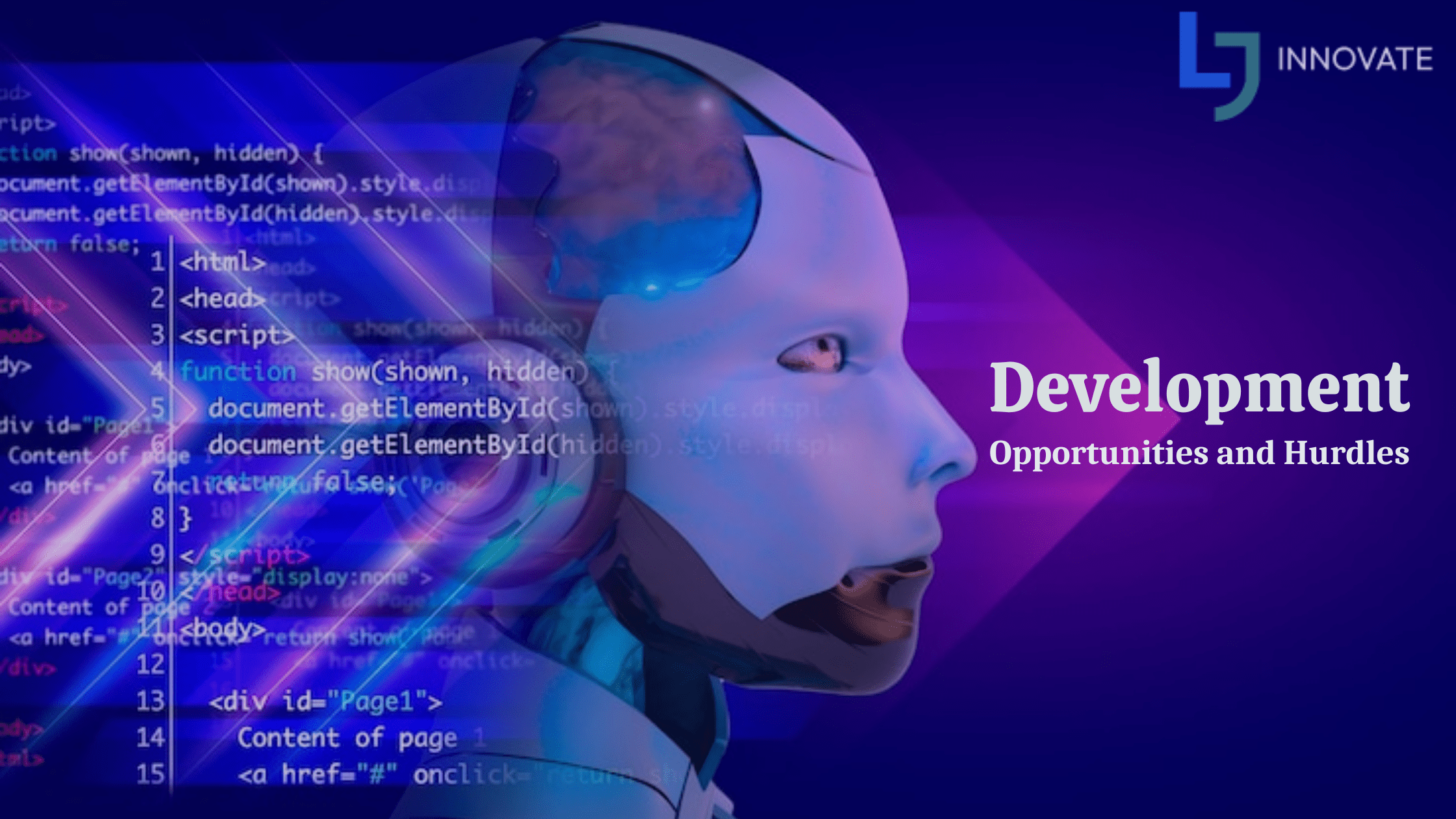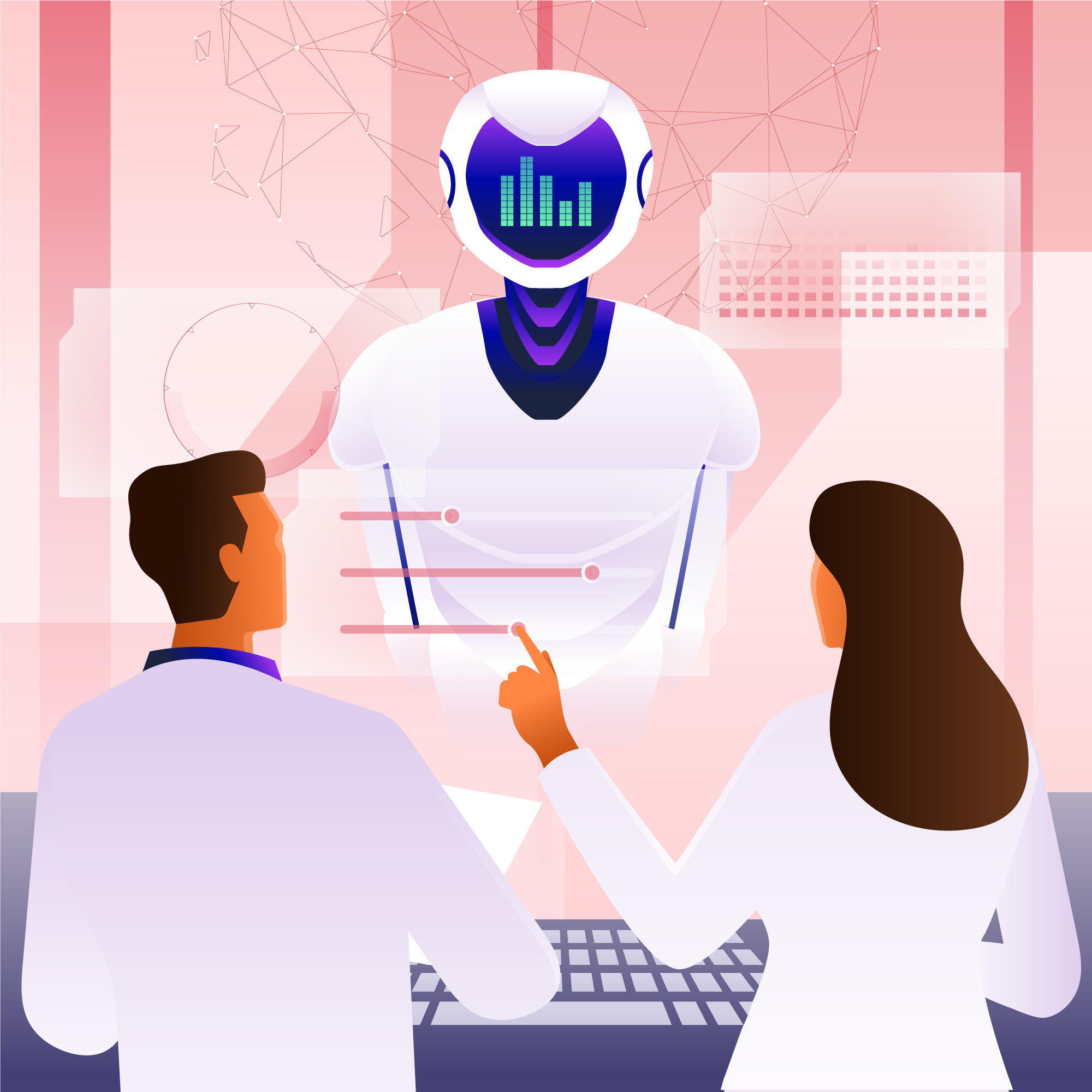Unlocking the Power of AI in Software Development

by admin, September 5, 2023
Unlocking the Power of AI in Software Development
You might have wondered how computers and other modern devices can do smart things, like recognizing your voice or suggesting movies you might like?
Well, that’s something called Artificial Intelligence or AI. It is changing how we do things in our daily lives and at work, especially AI for software development. In this blog, we are going to talk about Power of AI in Software Development. It’s making software developers do their jobs differently and bringing new opportunities and challenges.
So, let’s get started!
What is Artificial Intelligence?
Artificial intelligence, or AI, is a burgeoning area that is transforming the world of software development.
AI is the capacity of robots to learn and think like humans, allowing them to accomplish complex jobs that previously needed human intelligence.
AI has significantly influenced software development by enabling developers to construct smarter and more intuitive programs that can analyze massive quantities of data, make predictions, and even learn from their users.
TensorFlow, Keras, and PyTorch are prominent AI technologies in the industry, allowing developers to create smart apps that can learn and adapt on their own.
Developers may utilize these technologies to construct more intuitive and user-friendly programs that can analyze large quantities of data, make predictions, and even interact with users in a more natural and human-like manner.
The AI Evolution in Software Development

As the digital world evolves, artificial intelligence (AI) has progressed from a future notion to an essential component of current software development.
With the introduction of AI, we are witnessing a remarkable transformation in how we design, test, and deploy software.
AI was first used to automate simple tasks. However, as technology progressed, it began to handle increasingly complicated aspects of software creation, such as coding and debugging.
With AI software development, developers may now use AI-enabled tools to write code and anticipate probable flaws before they become defects.
AI’s Impact on Software Development
The influence of AI on software development is significant and far-reaching, with several tools and methodologies developed to assist developers in creating more efficient and user-friendly software.
-
AI in Software Design
AI-driven user interface design allows developers to create more intuitive and user-friendly interfaces that adapt to users’ preferences and needs.
AI-generated mockups and wireframes enable developers to rapidly and easily visualize design concepts and explore many solutions.
This enables more effective design decisions, resulting in a more successful end product.
Midjourney, for example, is one of the most popular programs in recent times that employs AI to produce graphics depending on the user’s prompts and inputs.
-
AI in Software Development
AI is increasingly transforming the way software is developed and deployed. AI code creation and optimization technologies, for example, are reshaping the software development process.
These tools assist developers in writing more efficient and error-free code, decreasing the time and resources necessary to create high-quality software.
OpenAI’s Codex is an example of an AI-powered code production tool that employs GPT-4 language models to produce code from natural language descriptions.
AI Applications in Software Development
Artificial intelligence has advanced from the perimeter to the heart of software development, boosting efficiency and creativity in unique ways.
It’s exciting to investigate the various AI use cases in software development, each illustrating how this powerful technology is changing the industry.
-
Code Autocompletion
AI-powered code autocompletion technologies have transformed the way developers write code.
Apps like TabNine and GitHub Copilot use machine learning methods to forecast and recommend code snippets as you type.
For example, GitHub Copilot, developed by GitHub in conjunction with OpenAI, supports developers by offering code ideas, allowing them to write code quicker and with fewer errors.
-
Bug Detection and Debugging
AI algorithms are highly successful in detecting faults and assisting in the debugging of processes.
Sentry, for example, uses artificial intelligence to detect app flaws and offer developers thorough information.
This helps teams detect errors early, decreasing debugging time and boosting overall program quality.
-
Natural Language Processing for Documentation
NLP-based AI solutions are useful in software documentation. For example, chatbots and language models driven by GPT-3 may create rich documentation, user manuals, and FAQs.
Developers may use this technology to automate the development of documentation, saving time and guaranteeing that the material is constantly up to date.
-
Predictive Analysis for Code Maintenance
AI-powered predictive analytics solutions can foresee code maintenance requirements, allowing development teams to handle possible issues in advance.
DeepCode analyzes code repositories for security flaws, performance bottlenecks, and code smells. Developers may use these insights to prioritize and optimize their codebase efficiently.
-
Automated Testing and Quality Assurance
AI is critical in automating software testing and quality assurance operations.
Test.ai, for example, uses AI to do autonomous testing on mobile applications, discovering UI flaws and potential bugs. This accelerates the testing process and delivers a more resilient final product.
How AI impacts software development
Let’s examine how employing AI in software development can boost productivity and outcomes.
- Automating Monotonous Tasks
One of the key advantages of AI is its capacity to automate repetitive and time-consuming processes such as testing, debugging, and code development.
It reduces the developers’ time to work on more sophisticated and innovative projects.
- Improved Decision-Making
AI systems can evaluate massive volumes of data and generate insights to help in smarter decision-making.
For example, AI may assist developers in identifying patterns and trends in user behavior, allowing them to produce more tailored and effective software.
- Enhanced Safety
AI can assist in identifying and preventing security concerns such as malware and hacking attempts.
AI-powered technologies may spot abnormalities and suspicious activity in real-time, boosting the security of software systems.
- Greater Efficiency and Productivity
AI-powered technologies can evaluate code and find flaws quicker than humans, increasing the speed and accuracy of the development process.
This enables developers to provide high-quality software more rapidly and efficiently.
Demerits of AI in Software Development
Every coin has two sides; while there are benefits of AI in software development, there are also certain hurdles to incorporating AI into software development. These are:
- Lack of Innovation
While AI may automate monotonous processes and aid decision-making, it may not have the same creativity and innovation as human developers.
This may limit the extent of AI’s contributions to software development.
Expense and Availability
AI-powered tools and technologies can be costly, requiring considerable investments in infrastructure and resources.
This may limit their availability to smaller firms or those that may not have access to powerful AI capabilities.
- Little Knowledge of the Context
AI algorithms are educated on specific data sets and may not have a thorough awareness of the larger environment in which they operate.
This might result in mistakes and inconsistencies throughout the development process.
- Ethical Issues
The use of AI in software development poses ethical questions about bias, privacy, and responsibility.
Developers must be aware of these risks and ensure that AI-powered systems are created and utilized responsibly and ethically.
What Lies Ahead: The Next Chapter of AI in Software Development
As the science of AI evolves, it will surely have a substantial influence on the software development business.
It’s frightening to believe that AI will replace our future workforce, and even positions that need years of expertise and constant learning, such as software developers, may be at risk.
Indeed, as we have seen in the past, AI has replaced manual labor in the workplace by automating occupations with repeated patterns. Although adopting AI tools resulted in employment losses in some areas, it also creates new chances for upskilling and reskilling in developing AI-related occupations in this situation.
It is preferable to consider it an option to save time and resources and make your job 10 times more efficient.
The Bottom Line
The advancement of AI is closely linked to the future of software development. It is a novel technique that requires adaptation, ongoing learning, and deliberate application to realize its full potential.
From coding to project management, AI for software development is poised to create a future in which complexity is reduced, efficiency is increased, and innovation is the norm.
Also Read:
Complete Guide to Enterprise Software Development